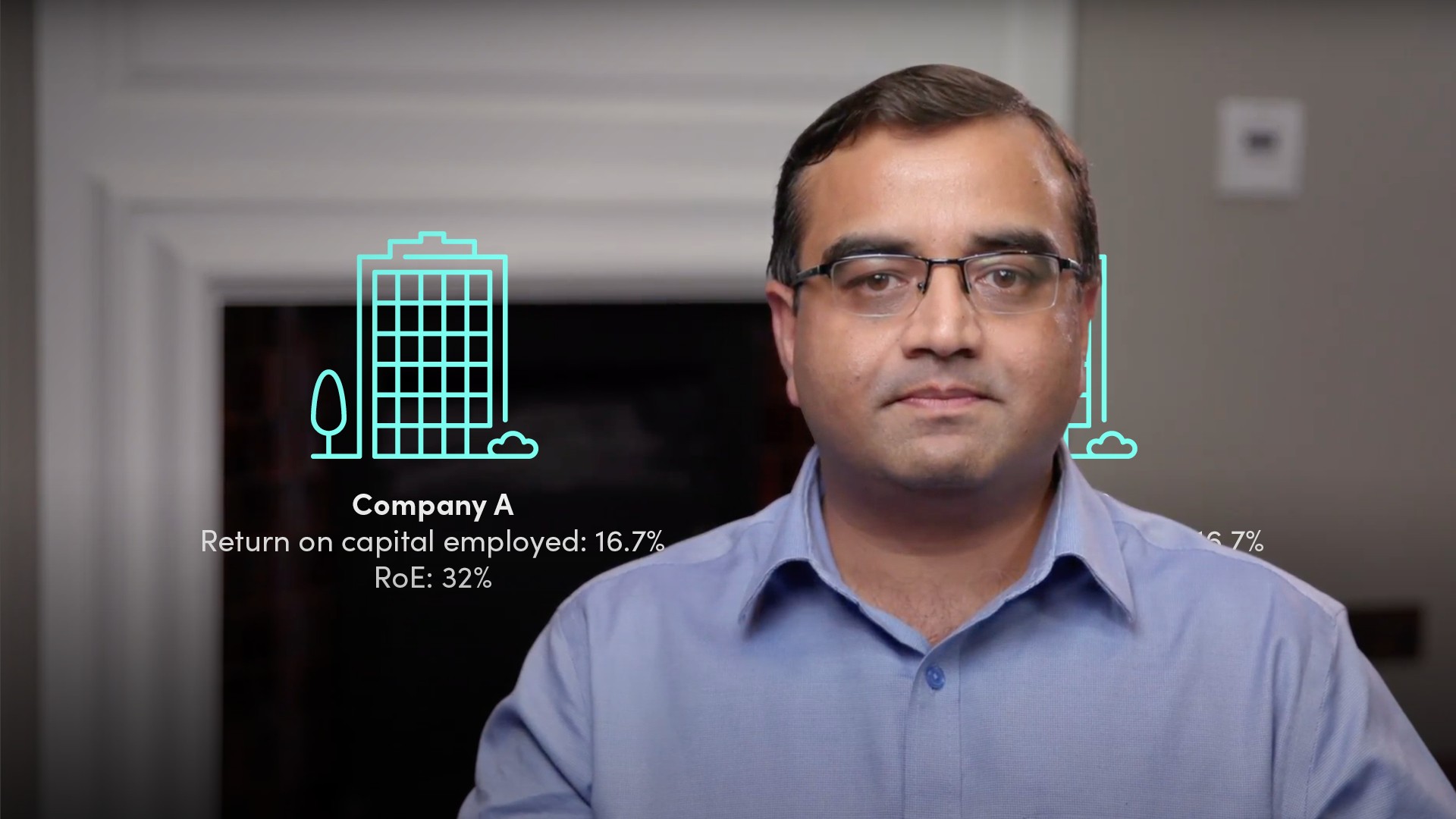
Return on Equity

Saket Modi
20 years: Chartered accountant & educator
The return on equity is a key financial metric which measures the magnitude of returns a company generates for its shareholders. In this video, Saket outlines its uses, and the way in which it is calculated.
The return on equity is a key financial metric which measures the magnitude of returns a company generates for its shareholders. In this video, Saket outlines its uses, and the way in which it is calculated.
Subscribe to watch
Access this and all of the content on our platform by signing up for a 7-day free trial.

Return on Equity
4 mins 16 secs
Key learning objectives:
Describe the return on equity
Understand how the capital structure of a company affects the return on equity
Overview:
The return on equity is a key financial metric which is looked at closely by the investors and analysts. The companies with a higher return on equity are generally preferred.
Subscribe to watch
Access this and all of the content on our platform by signing up for a 7-day free trial.
What is return on equity?
The return on equity is a key financial metric which measures the magnitude of returns a company generates for its shareholders. The investors generally prefer companies with higher return on equity. However, since the returns vary between sectors, the return on equity is a useful benchmark to measure performance between companies within the same sector only.
How do we calculate the Return on equity?
Return on equity = Net income available to the equity shareholders / Equity
How does the capital structure of a company affect the return on equity?
When a company wants to raise capital, it has the option to issue debt or equity or both. The capital structure or the proportion of debt and equity in the total capital has an impact on the return on equity.
Let’s say two companies, ABC and XYZ, have the same amount of total (debt and equity) capital, but company A has a higher proportion of debt in the capital structure. If the EBIT or the operating profit is the same for both ABC and XYZ, then assuming they operate in the same tax jurisdiction, ABC will have a higher return on equity compared to XYZ. The return on capital employed [EBIT / (Debt + Equity)] will be the same for both ABC and XYZ.
The after-tax cost of debt is lower than the cost of equity. Hence, for a profitable company, the return on equity is relatively high when the proportion of debt in the capital structure is higher compared to the proportion of equity in the capital structure.
Subscribe to watch
Access this and all of the content on our platform by signing up for a 7-day free trial.

Saket Modi
There are no available Videos from "Saket Modi"






















